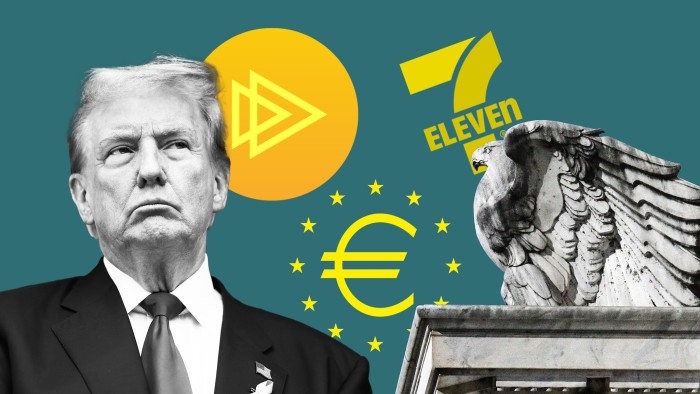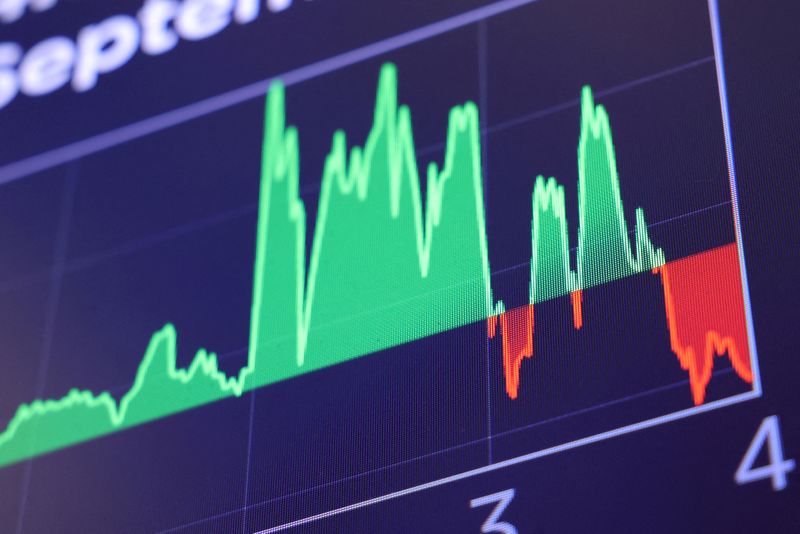One note to start: In this special edition of Due Diligence, we’re looking ahead to some of the biggest themes that will affect dealmaking, private equity, corporate finance and much more in the coming months. We’ll be back to our scheduled programming on Tuesday January 7. Thanks for reading and happy new year from Arash, JFK and the whole DD crew.
Welcome to Due Diligence, your briefing on dealmaking, private equity and corporate finance. This article is an on-site version of the newsletter. Premium subscribers can sign up here to get the newsletter delivered every Tuesday to Friday. Standard subscribers can upgrade to Premium here, or explore all FT newsletters. Get in touch with us anytime: [email protected]
1. What happens if private equity doesn’t get unstuck?
For the third year in a row, private equity distributions were about half of what investors expected.
Heading into 2024, many dealmakers were optimistic about a significant drop in interest rates that would support a boom in deals. Spoiler alert: it didn’t happen.
Now the pressure’s really on. If 2025 doesn’t come with the long-awaited reopening of public listings and M&A, returns for recent vintages could worsen.
The industry has leaned on short-term fixes, such as continuation funds, which represented 14 per cent of private equity exits last year, or so-called net asset value loans. But the power of short-term solutions could wane.
The clock is also ticking on private equity deals from 2020 and 2021; DD assumes many sponsors and limited partners aren’t having fun as these deals’ debt maturities approach in the coming years.
Many deals in that era were done at overly optimistic valuations and are behind schedule on deleveraging. These deals will need to get on track. Otherwise, creditors might want to brace for painful restructurings.
2. Will the dealmaking revival materialise?
Dealmakers have met Donald Trump’s impending arrival in the White House with optimism. But when aren’t bankers optimistic?
Since the election, big corporations have sparked a number of headlines. Mondelez’s short-lived play for Hershey and Honeywell’s move to potentially hive off its aerospace unit are signs the market is back.
Trump has promised lighter regulation and appointed Andrew Ferguson as the new head of the Federal Trade Commission, who pledged to dismantle aspects of outgoing antitrust watchdog Lina Khan’s agenda. That has bolstered the spirits of investment bankers and lawyers.
But it might not be all smooth sailing. In a Truth Social post, Trump said Big Tech has “run wild for years”, hinting that regulators would continue to police mergers between the biggest software companies.
Then there are interest rates — a key variable in larger transactions — which remain murky. The Federal Reserve cut rates by a quarter point but signalled a slower pace of easing in the coming year.
“I don’t think the environment was as nearly as bad as people made it out to be,” one M&A lawyer told DD. “And I don’t think it’s going to be nearly as good a year as people are suggesting, either.”
Still, the Joe Biden-era blockade on US bank M&A “has been removed”, so watch out for a wave of takeovers among US banks and mid-cap software companies. We also think energy, natural resources and industrial dealmaking are primed to take off.
But a multibillion-dollar takeover by Google parent Alphabet? Less likely.
3. How will Europe respond to American muscularity under Trump?
Trump is returning to DC this month all but chanting “America First” from Mar-a-Lago to the White House. That’s a problem for Europe, which was already flat-footed compared to the US’s financial might.
Even before Trump won, Mario Draghi, the former president of the European Central Bank, issued a call to arms in September with a 393-page report laying out how and why the continent needed to boost its competitiveness.
The region doesn’t just need national stars, but supranational champions: oil majors, banks and industrial powerhouses big enough to compete with American behemoths. As Draghi argued, fragmentation was the region’s greatest enemy.
Domestic banks have already begun lunging to consolidate the sector. But it’s unclear whether the energy to build colossal lenders will translate to other industries, such as auto, defence or aerospace.
The continent’s still licking its wounds from the failure of battery maker Northvolt in Sweden. But to compete with America’s economic strength, investors will have to quickly bounce back and plough their billions into the next promising start-up.
Watch this space. We think Europe is one step away from hitting the panic button, and big deals will follow. Is the continent braced for what that could mean for workers?
4. Will Japan become a hunting ground for foreign takeovers?
Japan’s starting to look like Wall Street in the 1980s: private equity firms are revving up, activist investors are causing a ruckus and corporate chieftains are scared.
Over the past 18 months, the corporate landscape in the country has been turned inside-out. Activists have snuck into national treasures and agitated for management overhauls, while private equity dealmakers have taken the market by storm.
Bankers are advising chief executives to draw up their most radical back-up plan and to keep it under lock and key for an emergency (ie, a potential hostile takeover).
One thing we’ve learned this year is that no company’s off limits. Case in point: Canada’s Alimentation Couche-Tard making a $47bn takeover approach for 7-Eleven’s parent company.
While iconic national brands looked on with horror, advisers took it as a sign of the wave of deals — or at least attempts — that might be lurking just around the corner.
For years, the C-suite simply ignored foreign approaches. But new government M&A guidelines have forced executives to be more transparent about them.
And the prospect of foreign takeovers is also sparking M&A at home. Look no further than Honda and Nissan’s merger talks.
So this year, Japanese companies will have to ramp up profitability, or risk being susceptible to a takeover offer. Or worse: a belligerent bidding war.
5. Will private credit blow-ups hit the asset class?
A series of restructurings this year left a mark on private credit’s otherwise pristine record, as the word Pluralsight became part of Wall Street’s vernacular.
But it wasn’t a total anomaly: a handful of other companies that private credit funds bankrolled have also run into trouble.
As these asset managers deal with an uptick in defaults, it may finally start to become clear if the returns on offer in these high-fee funds are really that much better than traditional high-yield bond and loan markets.
Many private credit funds were hopeful that lower interest rates would alleviate the debt costs of the companies they had lent money to.
But if the Fed pivots hawkishly in the face of Trump largesse, what does that do to those loans originated in 2021 and 2022?
Investors are already scrutinising public filings from private credit funds, looking for writedowns as a sign of lax underwriting standards. We’re not sure there will be a complete blow-up, but risk is certainly lurking.
This year’s predictions:
Will Donald Trump and Elon Musk have a falling out?
We think there’s a decent chance. Better to ask when, not if.
Will Larry Fink or Jamie Dimon name a successor?
BlackRock went on a $30bn deal spree this year that has crowded its executive ranks. Perfect for Fink to rule the roost. Dimon’s more likely. We think he becomes executive chair sooner than you’d expect and a new CEO is named.
Will Andrea Orcel bag a mega-deal?
Yes, he’s nothing if not determined. Look at that stake-building.
Will Musk get his $56bn pay package?
Expect the Delaware Supreme Court to find some way to compromise. Perhaps affirming the corporate governance shortcomings at Tesla but awarding no damages. Godspeed.
Will Thames Water crash into special administration?
Elliott Management and other heavyweight funds are putting up billions to keep the UK’s largest water supplier from being temporarily re-nationalised. But as Thames is essentially a money pit with a £19bn debt stack built on top, it’s still quite possible the edifice comes crashing down.
Will Rupert Murdoch dismantle his media empire?
Yes. This will be a big story this year. Our favourite parlour game: Who’s going to buy The Wall Street Journal?
Will a major private equity firm get acquired?
Yes. Consolidation will remain a theme. Private capital multiples have soared, but not for the likes of the Carlyle Group and others. It could prove alluring to the right buyer.
Will David Solomon return to his DJ sets?
Ask the Goldman Sachs communications department. They love when you do. See you at the piano bar in Davos, D-Sol.
Which market will surprise us for big deals?
Vive la France.
Some of our favourite work from last year:
Our six-part series on the new titans of Wall Street
Our four-part series on Berkshire after Buffett
How private equity tangled banks in a web of debt
The ballad of Lars and Bruno
How Starboard bungled its activist plot against Pfizer
Peter Orszag wants to reimagine Lazard. Will his bankers let him?
Lunch with the FT: Nelson Peltz
BlackRock’s Larry Fink won’t be rushed in the search for his successors
Infrastructure: from investment backwater to a $1tn asset class
Gary Stevenson claims to have been the best trader in the world. Old colleagues disagree
A billionaire bought a lobster shack in the Hamptons. Then the trouble began
The undercover hedge funds financing activist short sellers
Due Diligence is written by Arash Massoudi, Ivan Levingston, Ortenca Aliaj, and Robert Smith in London, James Fontanella-Khan, Sujeet Indap, Eric Platt, Antoine Gara, Amelia Pollard and Maria Heeter in New York, Kaye Wiggins in Hong Kong, George Hammond and Tabby Kinder in San Francisco, and Javier Espinoza in Brussels. Please send feedback to [email protected]



